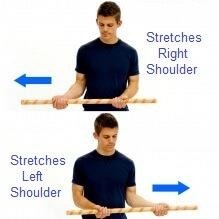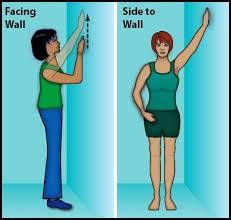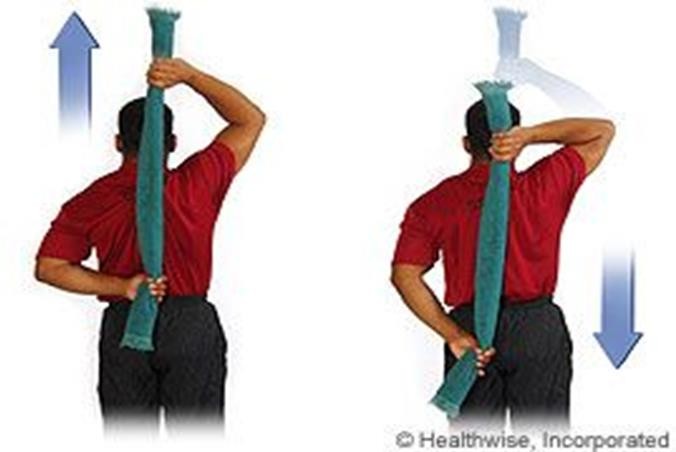Frozen shoulder is also termed as periarthritis shoulder or adhesive capsulitis. It can be defined as a condition of glenohumeral joint that causes acute inflammation and subsequent stiffness of shoulder joint. Inflammatory degeneration of shoulder joint capsule and soft tissues surrounding it, results in adhesions.
Causes
Lunberg classified into two groups
a) Primary frozen shoulder- in it there is pain radiographs, no inciting event and has no finding other than loss of motion
b) Secondary frozen shoulder- due to precipitant traumatic events such as rotator cuff injuries, osteoarthritis, fractures, autoimmune disease
c) Genetic and environmental factors
d) Diabetes mellitus
Stages
a)Freezing- complaints of slowly more and more pain, felt more during night that affects sleep. Tenderness is felt.
b)Frozen- pain gets better but stiffens the shoulder, also loss in range of motion is seen.
c)Thawing- in this stage shoulder movements gets improved, and pain gets decreased.
Risk factor
a) Age- it is most common between 40-60 years
b) Gender- women are more familiar than men
c) Diabetes
d) injury to shoulder
e) other conditions such as stroke, hyperthyroidism, hypothyroidism ,Parkinson’s disease.
f) tuberculosis
g) thyroid disorder
h) stroke
i) avascular necrosis.
Signs and Symptoms
- Pain
- Pain on movement,
- inflammation
- pain increases during night
- Loss of range of motion
- Stooped rounded shoulder
- Tenderness over shoulder joint
- Joint stiffness
- Neck and back pain
- Reduced arm swing while walking
- Morning stiffness is seen
when to see a doctor
if pain persists even after resting the shoulder and not moving the arm and hand, if there is any weakness or felling of numbness on shoulder or if swelling is present over the shoulder joint .
Treatment
Thermotherapy – as before giving passive mobilization the contracted capsule can be relaxed by giving heating. There are some exercise to stretch the shoulder
- Pendulum – lean forward with support, now let the arm hang down and swing the arm forward and backwards, side to side and in circular motion clockwise and anticlockwise . these movements should be repeated for 10 to 15 times.

- Stick twisting exercise – Keep elbow into side and now push the unaffected arm so the affected arm is moving away from the midline note that body should not move with the twisting movement , repeat for 10 times.

- Ladder exercise – in it patient face wall from front and side and move the fingers of affected side upward along ladder to maximum reach, elbow should be straight.

- Towel stretch – Patient is advised to drap a towel over good shoulder, the other end of the towel is to held by the affected arm and pull it toward the lower back withunaffected arm with repetition of 10-15 times

Prevention
- It can be prevented by doing progressive range of motion exercise ,
- even stretching exercises of shoulder can be done
- to take care of correct posture of sitting
- to take break from system in every 1-2 hours if working style is sedentary
- healthy immune system
